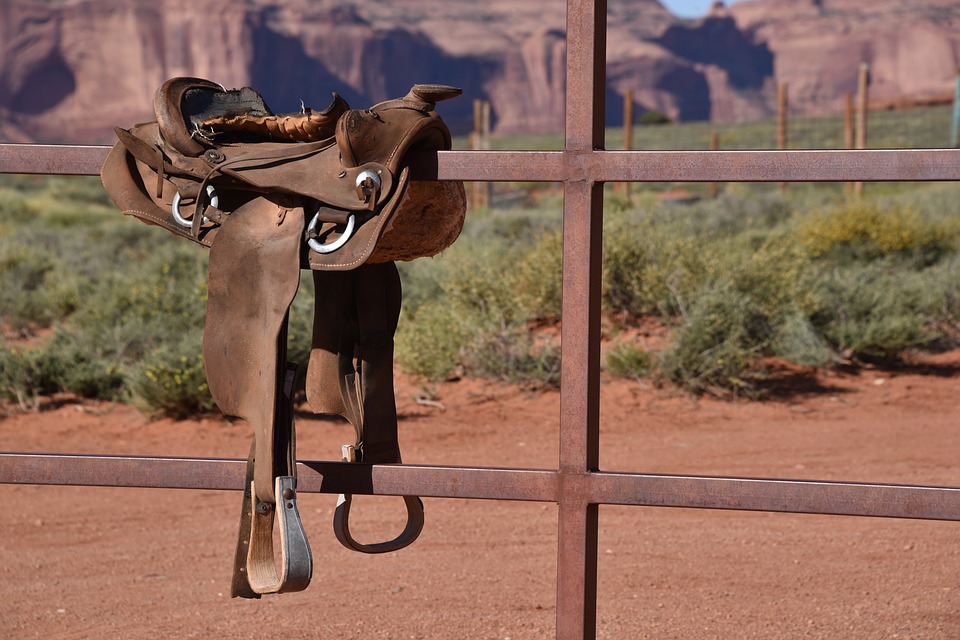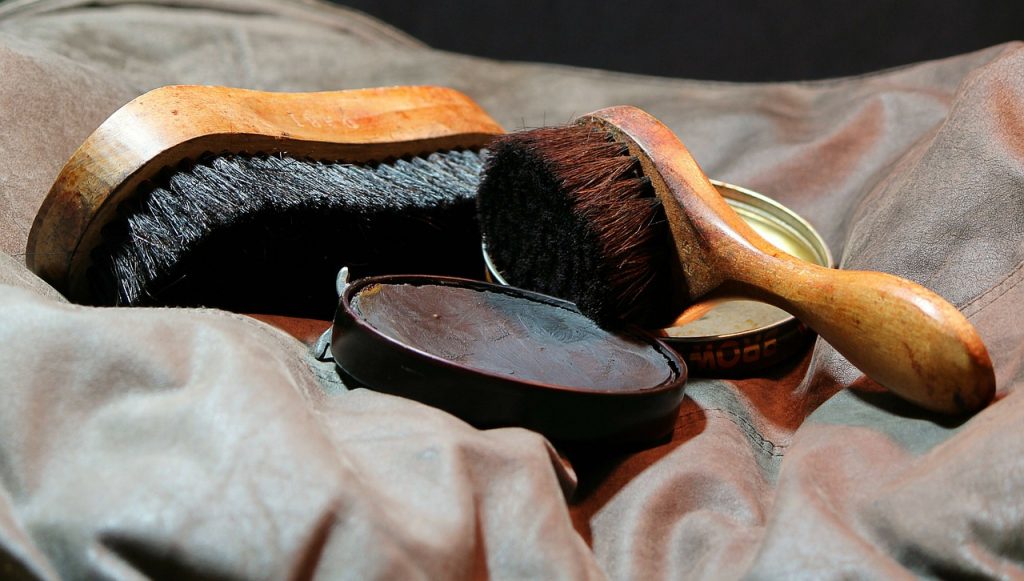It’s only natural to want your leather to maintain its look and feel for the years to come, and it certainly can. The key to this is caring for your boots, jackets and other leather garments properly, and learning how to use saddle soap in conjunction with the best conditioners.
There’s no other material or fabric that compares to the versatility of genuine leather. Whether it’s made of cow’s hide, sheep’s hide or any other common animal hide, leather offers the perfect balance of comfort, style, and durability. Perhaps this is why it remains one of the world’s most widely used materials in the production of jackets and accessories.
If you’re thinking about buying new leather pants or some other leather garment, you’ll need to know how to care for it. Leather — like all materials — requires regular maintenance to preserve its original appearance and characteristics. Failure to do so could result in degradation and subsequent shortening of the lifespan of your leather garment.
While there are dozens of ways to clean and care for leather, one of the best all-around solutions is to use saddle soap. So, what is saddle soap exactly? And how do you use it on leather? To learn more about saddle soap, keep reading.
The Basics
Some people assume that saddle soap is designed specifically for leather saddles, but this is a misconception. Granted, as its name suggests, you can certainly use saddle soap to clean and maintain saddles, but this is far from its only application. Saddle soap is perfect for a range of leather products, including, but certainly not limited to:
- Jackets
- Shoes
- Boots
- Belts
- Trousers
If it’s made of leather, you can use saddle soap on it.
What is Saddle Soap Made Of?
Saddle soap is a type of leather conditioning product that’s used to clean and condition leather, as well as protect it from damage. Although there are dozens of different types and varieties of saddle soap available for sale, most contain some basic ingredients such as lanolin and beeswax.
Also known as wool wax or wool grease, lanolin is a wax-like substance that’s excreted by wool-bearing animals like sheep. Technically speaking, lanolin consists mostly of long-chain waxy esters, along with trace amounts of lanolin alcohols, acids, and hydrocarbons. There are between 8,000 and 20,000 different types of esters in lanolin.
This unique composition makes lanolin — and products containing lanolin (such as saddle soap) — particularly effective at cleaning and conditioning leather products. Lanolin has powerful moisturizing properties, which is why it is also often used in infant moisturizing creams and lotions. Furthermore, it is commonly used in lip balm, as it moisturizes and protects the lips from dehydration.
The Benefits of Using Saddle Soap on Leather
If you’ve ever shopped at a leather specialty store, you’ve probably encountered a plethora of leather cleaning and conditioning products, all labeled as “the best leather care product”. So, why should you use saddle soap to maintain your leather goods?
First of all, saddle soap provides leather with just the right amount of moisture to prevent it from drying out. As you probably already know, leather has a tendency to dry out over time if not treated properly. This is especially true if you use it outdoors where it’s exposed to the sun’s ultraviolet (UV) light.
Over time, the sunlight and dry air will cause the moisture within the leather to evaporate, and when this happens, the leather will become dry, start feeling rough, and become brittle. This can often result in the leather cracking and suffering substantial and sometimes irreparable damage.
Using saddle soap and regularly conditioning your leather garments will prevent this from happening by supplying leather with enough moisture and protection from the elements.
Additionally, saddle soap contains several powerful cleaning compounds and can remove virtually any stain from your leather products. To sum up, you can use saddle soap to clean, maintain, moisturize and protect any leather product, from a saddle to a belt.
How to Clean and Condition
Now that you know a little bit about the benefits of using saddle soap when cleaning and conditioning leather, it’s time to get started with the cleaning and conditioning routine.
Prepare The Area and Kit You Will be Using
First things first. Make sure you clean the table or other area you will work on and place everything you need within arm’s reach. This is an important first step since your damp leather is likely to pick up any dust and small particles from the surfaces around it.
Here is what you are going to need:
- A washing cloth
- A drying cloth
- A cloth or a sponge for applying saddle soap
- A bowl of clean water
- Leather soap
- Any other conditioning products you intend to use
Once you are prepared, you can start working on the leather.
Clean The Leather Surface
Before applying any conditioner to your leather, you need to make sure it is clean enough to absorb it. Take a clean cloth, add just enough water to make it damp but not soaked, and rub it across the surface of the leather product. The general idea is to remove any lingering dust or debris, which could otherwise affect the outcome of your saddle soap application.
Make sure to pay special attention to areas with seams, where leather layers overlap, as this is where dirt is most likely to collect. You can use an old toothbrush to clean those hard to reach places, such as the area where the leather connects to the sole of the boot. Once clean, you can then proceed to apply the saddle soap.
Applying the Soap
Depending on the specific product, you can apply saddle soap to most types of leather by dabbing it onto the surface with a clean cloth or a sponge. Apply a small amount of saddle soap to a cleaning cloth, and then gently rub the cloth across the surface of your leather product. Much like applying wax to a car, the saddle soap should disappear as you rub it into the leather.
Make clockwise rubbing motions until the saddle soap is no longer visible. It’s a good idea to mentally divide the leather surface into several areas and then treat them with saddle soap in succession. Continue doing this until you’ve covered the entire surface of the leather product. Once you are satisfied, use a dry clean cloth to wipe off any access soap from the surface.
Applying Leather Conditioners
After cleaning your leather product, it is a good idea to apply some form of additional conditioning or polish, depending on the type of garment. You want to go with high-quality conditioners or oils, to make sure the leather stays soft and flexible and to prevent cracking and other damage caused by exposure to the elements, as well as general wear and tear.
Leave the Leather to Dry
After cleaning and conditioning your leather product, it is important to give it enough time to dry and absorb the conditioners you applied before it’s ready for use. This period of time can range from a couple of hours to a whole day.
It’s best to leave the leather to dry naturally in a shade and avoid keeping it near any heat source, as tempting as it may be, since this can cause severe damage and undo all your work.
The Final Touch (Optional)
While using polish is a matter of preference and depends on the type of garment, wax and most polishes add an extra layer of protection to the leather and give it a water-repelling quality. Alternatively, you can use a water-repellant spray on leather jackets or footwear, to make sure water rolls off the surface if you get caught in a rain.
How Often Should I Use Saddle Soap?
It’s important to note that saddle soap should be applied to leather products on a regular basis, but also not too often. A good rule of thumb is to apply saddle soap and similar conditioning products to leather once every few months for maximum protection and durability. Doing so will help protect your leather from different types of damage, including drying out and cracking, and will increase the lifespan of your leather garments significantly.
However, keep in mind that applying saddle soap too frequently could actually do more harm than good, which is why it’s not recommended to clean leather with saddle soap more than once in two or three months. After all, saddle soap is intended as a product for deep cleaning, not everyday maintenance.
What Type of Saddle Soap Should I Use?
Generally speaking, saddle soap can be used on all types of genuine leather. However, there are countless different saddle soaps in the market, and not all of them are of equal quality, nor is a single product the best for all your leather garments.
First of all, you want to opt for a soap made of all-natural ingredients and avoid any chemicals and artificial substitutes.
Second, you want to consider the color of the leather product you want to clean and condition. Saddle soaps come in two colors: white and yellow. White saddle soap is best suited for light-colored leather, while the yellow variant is best used to condition black, dark brown and other dark-colored leather.
This distinction can be important since it will allow you to avoid even the slightest decoloration of your lighter leather products if such a change would bother you.
Finally, you should also know what types of material you shouldn’t use saddle soap on. These include suede, nubuck, and other delicate leather. If you are unsure, you can always check the manufacturer’s specifications, but you are almost guaranteed to find that leather soap is safe to use.
In Conclusion
To recap, saddle soap is one of the oldest leather care products used to clean, condition and preserve the original appearance of leather. Its regular and proper application provides leather with much-needed moisture, while also getting rid of even the most stubborn stains. In essence, it’s the most basic and essential maintenance product, suitable for almost all types of leather.


